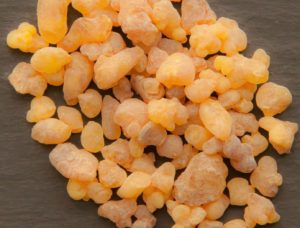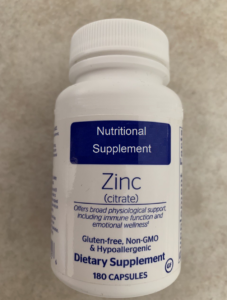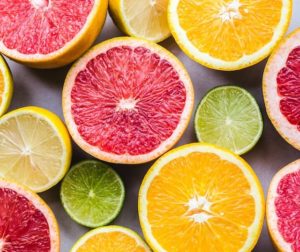Natural Approaches to Boost Testosterone
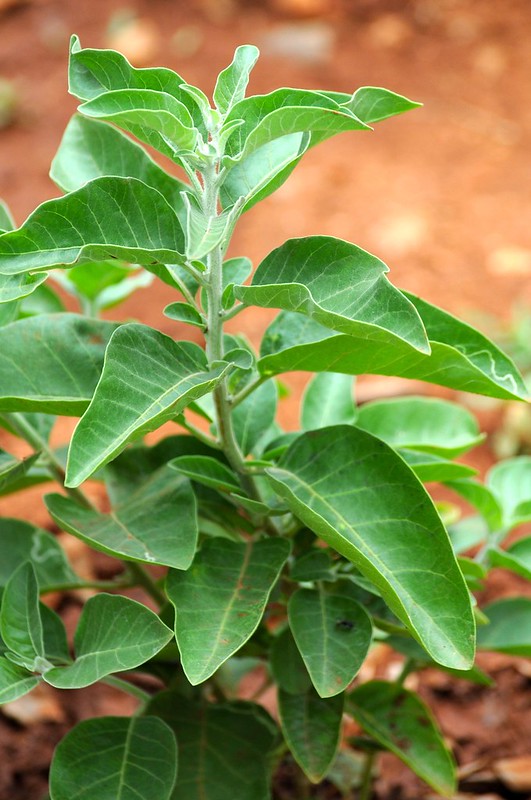
Low testosterone levels in men are a common problem. While testosterone replacement can raise levels, it comes with significant side effects and challenges with its use. Testosterone replacement can increase the risk for blood clots, cause male infertility, shrink the testicles and increase the development of breast tissue. For replacement, testosterone is either injected on a regular basis or applied as a topical cream. As a topical, family members often get exposed which can cause early or inappropriate sexual development in children (Franklin 2003). For female partners, hair growth on the face and other masculinizing symptoms can occur from inadvertent exposure (Ronde 2009).
While often overlooked, there are a number of ways to naturally support testosterone production. Research has shown that all of the following can potentially be helpful:
- Dietary interventions
- Nutrients, including magnesium and zinc
- Herbal medicine
Dietary Interventions for Testosterone
Blood sugar problems and excess weight can both degrade testosterone production (Fui 2014, Zitzmann 2009). Diet is one obvious player in both issues. A study exploring low-fat, high-carbohydrate or low-fat, high-protein diets found that both improved testosterone production in men that needed to lose weight (Moran 2016). A low-calorie ketogenic diet (high fat, very low carbohydrate) also found rapid restoration of testosterone levels in obese men (Cignarelli 2023).
For overweight individuals, it appears that most healthy diets that help them lose weight can have a positive impact on testosterone production. What is likely to be most important is adopting a healthy eating approach that is sustainable long term to maintain the benefits.
Nutrients and Testosterone
A number of nutrients have been found to affect testosterone levels. While some initial research appeared to indicate that vitamin D might have an effect, the latest meta-analysis appears to show no benefits (Pilz 2011, Marnani 2019). Studies in men who were deficient in vitamin D were included which also didn’t find benefits on testosterone production (Heijboer 2015, Lerchbaum 2019).
Magnesium
Supplementation with magnesium has shown positive effects on testosterone levels. A study in both sedentary and exercising men found that magnesium supplementation increased their total testosterone (Cinar 2011). The effects were greatest in those who were exercising, with levels at rest increasing by 25%. For subjects that exercised without supplementation, levels only increased by 15%.
A study in older men also found a strong correlation between serum magnesium levels and testosterone (Maggio 2011). While not a direct clinical trial, it also supports a potential link. A study in football players given a magnesium, zinc and vitamin B6 supplement or placebo found benefits with the combination (Brilla 2000). Free testosterone levels increased by 33% with supplementation.
Zinc
Another mineral that shows promise for improving testosterone levels is zinc. Initial research on zinc as an essential nutrient found that severe deficiencies in adolescents led to delayed sexual maturation and growth, both of which were rapidly corrected with supplementation (Sandstead 2013). One of the first clinical trials in humans explored zinc supplementation in deficient sickle cell anemia patients (Prasad 1981). Sickle cell anemia is a genetic condition where red blood cells are not round and plump, but shaped like sickles, hampering oxygen delivery throughout the body. Zinc supplementation was found to restore testosterone levels in men diagnosed with sickle cell anemia.
A review of zinc supplementation for improving sperm and testosterone production in males with low levels of testosterone found benefits with supplementation (Santos 2020). In men that consume enough zinc, however, zinc supplementation was not found to raise testosterone levels any further (Koehler 2009). Globally, estimates suggest that around 17% of the population is at risk for zinc deficiency, likely compromising testosterone production for those individuals with inadequate intake (Wessells 2012). It’s also worth noting that you can get too much zinc, and daily intake should not typically exceed 40 mg per day over the long term.
Herbal Medicine
Fenugreek Seeds
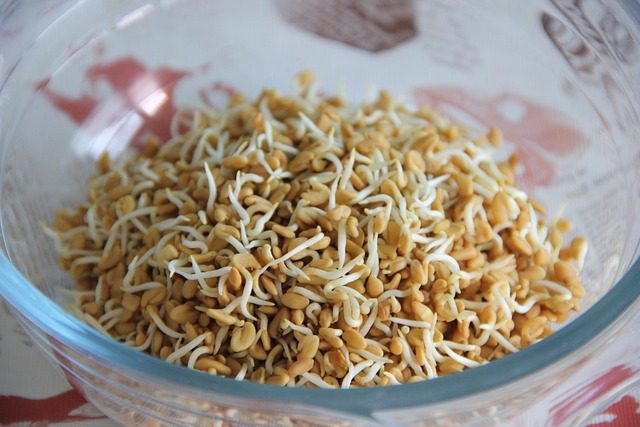
Evidence for positive effects on testosterone, albeit with some mixed results, come from human trials on fenugreek seeds. One of the first trials compared a fenugreek extract to placebo in college-age men (Wilborn 2010). While the increases in total testosterone and bioavailable testosterone were a modest 7% and 12% respectively, they correlated with improved muscle performance and decreased body fat.
A separate trial found that a fenugreek and mineral formula improved sexual arousal and orgasm in healthy males, along with quality of life, although no changes in total testosterone were noted (Steels 2011). However, a double-blind study in older males found improvements in sexual function along with increased testosterone levels with twelve weeks of fenugreek supplementation (Rao 2016).
A patented extract of fenugreek was tested in male volunteers. In the study, free levels of testosterone increased by 47% on average (Maheshwari 2017). Sperm counts were also significantly increased with the supplement. Yet, a study on older men with benign prostatic hyperplasia (BPH) found no change in testosterone levels or symptoms of BPH with fenugreek supplementation (Rao 2020).
As of 2023, a meta-analysis of the published studies concluded that fenugreek has a small but significant effect on testosterone (Isenmann 2023). In the analysis, they found that free and total testosterone levels were increased, lean body mass and fat mass were both reduced and leg press performance improved. The authors conclude that fenugreek appears to have at least some performance-enhancing anabolic effects in males.
Tongkat Ali
The herb tongkat ali (Eurycoma longifolia), sometimes called longjack, is an herb with a long history of use in Southeast Asia. More recently, its use as a male tonic has been explored in clinical trials.
The first study in humans published in 2012 found that tongkat ali was able to significantly restore testosterone levels after one-month’s supplementation (Tambi 2012). In the study of male patients with low testosterone, only 36% had levels in the normal range at the beginning of the study. After treatment, 91% had testosterone levels that had been restored to normal. A separate trial published the same year found improvements in sexual function for healthy males with tongkat ali, but no changes in testosterone levels overall (Ismail 2012).
A more recent study on aging males found that tongkat ali was effective for raising testosterone (Chinnappan 2021). Over the course of three months, total testosterone levels increased with supplementation by 12%. Beyond those already discussed, most of the other published studies are small, but a recent meta-analysis concluded that tongkat ali likely raises testosterone levels (Leisegang 2022).
Ashwagandha
Ashwagandha (Withania somnifera) is an herb from ayurvedic medicine with a long history of use as a male tonic. A study on healthy young men taking ashwagandha combined with weight training found benefits. In the study, ashwagandha increased muscle mass and strength, along with raising testosterone levels as compared to placebo (Wankhede 2015).
In men with poor sperm production, ashwagandha significantly improved production and sperm quality. Additionally, testosterone levels were found to increase by 15% with ashwagandha supplementation after three months (Ambiye 2013). A study in aging overweight males found similar increases in testosterone with two months supplementation (Lopresti 2019). In stressed adults, ashwagandha was also found to increase testosterone levels in males, but not females (Lopresti 2019).
Conclusion
A number of natural approaches appear to be able to support testosterone production. Consuming a healthy diet and losing weight, when needed; getting adequate magnesium and zinc; and the herbs fenugreek, tongkat ali and ashwagandha may all provide benefits.

